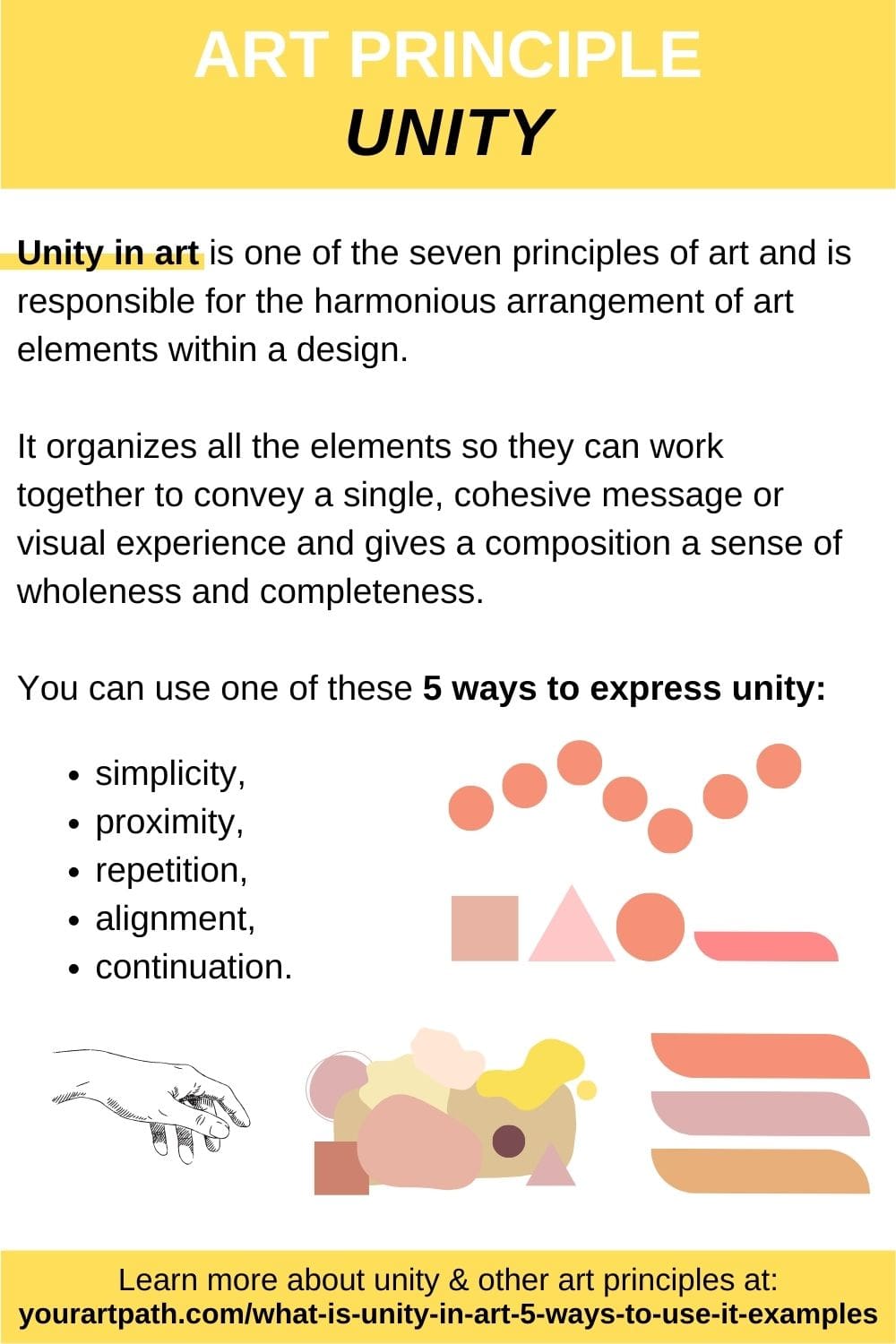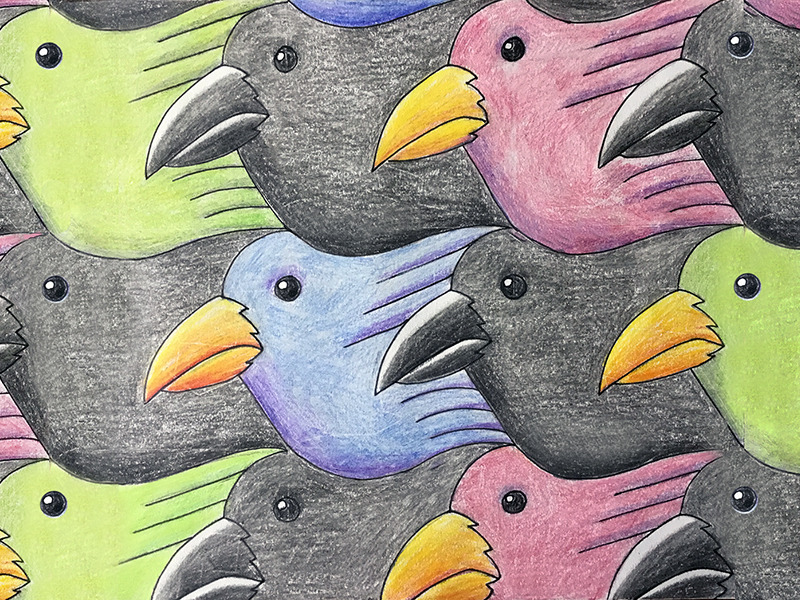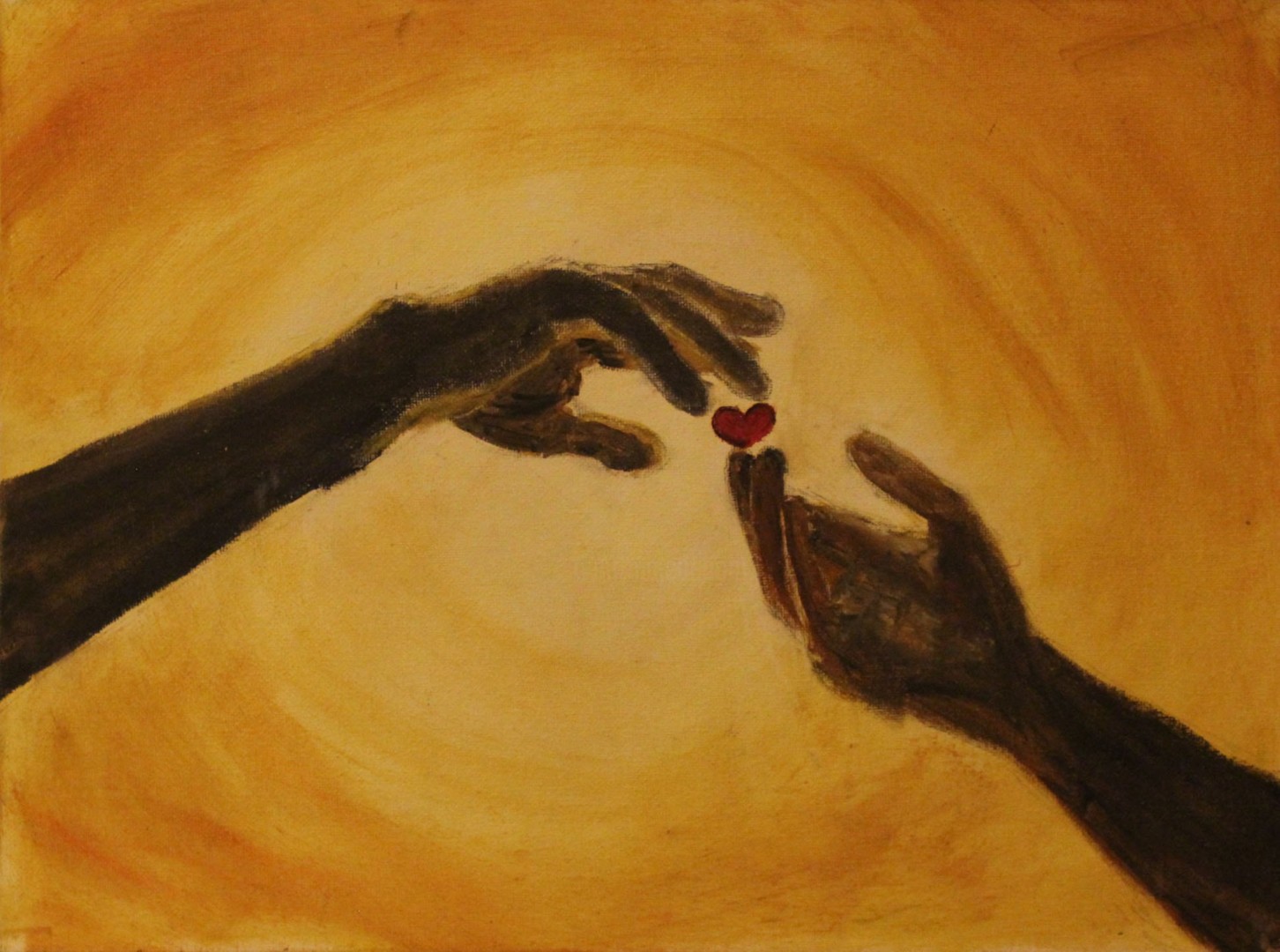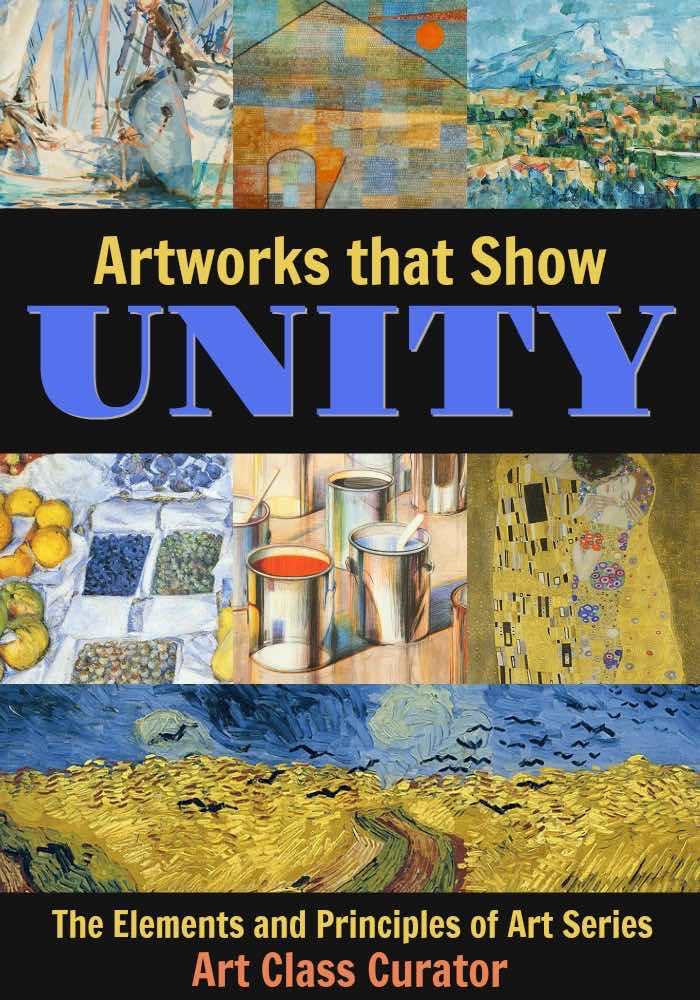
What is Unity in art? 5 Ways to Use it + Examples YourArtPath
Unity in art involves creating a sense of coherence and harmony, where all elements work together to create a unified whole. In contrast, variety in art involves using diverse techniques and elements to create visual interest, contrast, and complexity. Through careful use of these technical qualities, artists are able to create works that.

16 unity. The artist uses unity to show the emotional connection between these people. They are
Examples of Unity in Art Using Shape/Form Gustav Klimt, The Kiss, 1907-08 Wassily Kandinsky, Circles in a Circle, 1923 Gustave Caillebotte, Fruit Displayed on a Stand, 1881 Piet Mondrian, Broadway Boogie Woogie, 1942 Salvador Dali, Galatea of the Spheres, 1952 Caspar David Friedrich, The life stages (beach picture, beach scene in Wiek), ca. 1834

Unity And Variety In Art Examples slideshare
Here we take a look at two prominent examples: the abstract expressionist drip paintings of Jackson Pollock and the digital art movement's use of unity in modern graphic design. Abstract Expressionism: Jackson Pollock's Drip Paintings

Unity, Harmony, and Variety Principles of Art
This example shown above creates unity in this relaxing bedroom with Garden Poetry artwork enhancing the neutral tones to create an overall calming aesthetic. The artwork was specifically selected for its impressionistic feel that works perfectly with the taupe walls. Viewing Art With Unity

Unity by ShilpiCreativeArts in 2020 Unity painting, Painting, Principles of design
Creating unity in art does not always mean repeating the same element over and over again, but creating a pleasing composition of diverse elements. 20 unity in art examples will be presented in this article, explaining unity in art. Keep reading! What is Unity in Art An artwork's feeling of "oneness" is achieved by the principle of unity.

The Best Pictures Of Unity In Art 2023
2 Examples of Unity in Art 2.1 Katsushika Hokusai's The Great Wave (1830) 2.2 Vincent van Gogh's Wheatfield with Crows (1890) 2.3 Wassily Kandinsky's Circles in a Circle (1923) 3 Examples of Variety in Art 3.1 Andy Warhol's Marilyn Diptych (1962) 3.2 Audrey Flack's Marilyn (1977) 3.3 Keith Haring's We The Youth (1987) 4 The Perfect Blend

unity/in/art Google Search Unity in art, Principles of art, Harmony art
What are some examples of unity art? Gustave Caillebotte, Fruit Displayed on a Stand Piet Mondrian, Broadway Boogie Woogie Rene Magritte, Golconda John Singer Sargent, White Ships, circa Pablo Picasso, The Dance of Youth Marcel Duchamp, Nude Descending Staircase Georges Seurat, A Sunday on La Grande Jette Fernando Botero, The Musicians

Unity In Diversity Fine Art Print Shahram Soltani Unity in art, Harmony art, Principles of art
Unity Variety Proportion Harmony In simple words, the principles of art are the guidelines, or visual tools, that artists use to organize elements within their artworks. Art principles act as thе "grammar" of visual languagе, shaping how individual componеnts comе togеthеr to convеy mеaning, evoke emotions, and guidе thе viеwеr's еxpеriеncе.

Unity, Painting by Equilibrium Art Artmajeur
(Explained in Detail) By Bryan Mullennix Unity in Art is a concept in which the components of art are used or placed in such a way that they convey a sense of completeness. This leads to the artwork's composition being unified. Unity, in short, gives an artwork a sense of "oneness."

16 by 20 painting "Unity" Painting, Art paintings for sale, Unity painting
In this blog post, we will discuss unity in art, providing examples and exploring the visual elements of unity such as line, colour, texture, shape, form and space, then we will also look at how other design principles such as balance, pattern and variety overlap with unity. Disclaimer: Fine Art Tutorials is a reader supported site.

Blue Unity Painting Blue Unity Fine Art Print Unity in art, Unity painting, Principles of art
Unity is a sense of oneness (a cohesion or agreement) found in the artwork. This is a sense that all the parts fit together visually; that the whole artwork is greater than the forms or any other parts of the work. (Think of think of this in terms of a orchestra. The conductor directs the musicians who are playing many different instruments.

scale in art Scale art, Art, Unity
Table of Contents [ Show] What Is Unity in Art? Exploring the question around, "What is unity in art?" we need to briefly look at how it is defined. If we look at the word "unity", it relates to a state of wholeness; it is described by some scholarly sources as "a totality of related parts: an entity that is a complex or systematic whole".

Examples of Unity in Art Using Shape, Form, Line, Color, and More
Unity in art is key for a visually pleasing artwork. When the components work together, it makes a unified and harmonious work which captures the eye. To have unity, minimise clutter and maximise coherence. Repetition is one way to get unity. Repeating colours, shapes or lines makes a consistency across the piece.

Unity in Art A Way to Visual Harmony Widewalls
Examples of structural unity include a quilt with four quarters or regions that repeat, or a Tibetan mandala that echoes in repeated shapes that are nested within one another. Arousing the Mind Unity can be thought of in terms of Gestalt psychology as a factor that arouses the mind by the redundancy of information.

This is an example of unity because it shows the lion family together. Prophetic art, Art
Sep We are all well aware of the phrase— Unity in Diversity ! But how many of you know what Unity in Art means? If this is something new for you, that's alright! Because with Unity in Art we are getting into the technique and principles of art. Understanding how exactly art is put together!

Examples of unity in art Qasphoenix
Unity in an artwork creates a sense of harmony and wholeness, by using similar elements within the composition and placing them in a way that brings them all together.. Variety adds interest by using contrasting elements within the composition.. The example below is a very simple illustration of the principle, using circles of different sizes and colors to show how a composition can be unified.